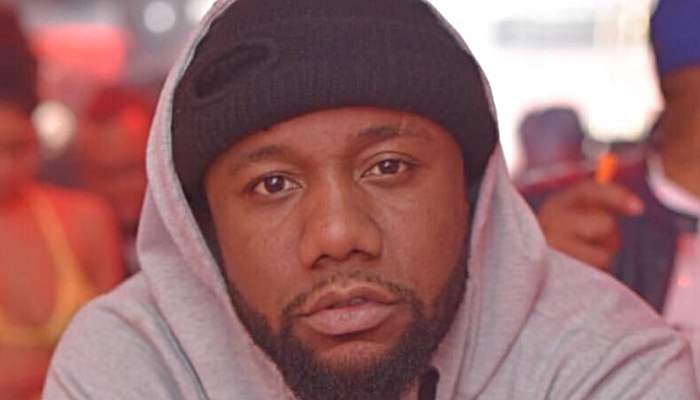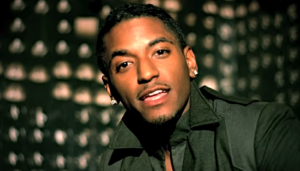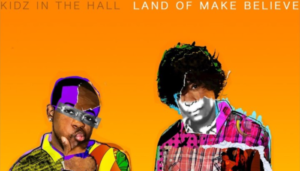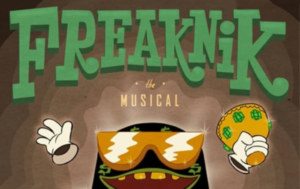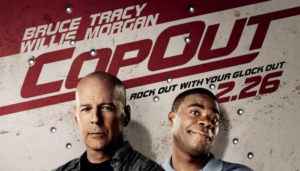A rap battle in front of the Adam Clayton Powell building in Harlem with Jae Millz made the then-18-year-old John Ancrum into Murda Mook, now a household name among rap fans and lovers. He ran through more such contests with the likes of Serius Jones and Loaded Lux, and today, at 25, Mook plans to take the scars and lessons learned from the battlefield to propel himself through the music industry. A recent Murda Mook-Ruff Ryders deal has given him his platform, and he’s just hopped inside the Spaceship. What’s his background like? How does he plan on transitioning from battle rapping to making music, such as Murda Mook’s Countdown to Murda mixtape? He gave Parlé some time for this Murda Mook interview.
Parlé: I know you’re from Harlem, but where exactly?
Murda Mook: 116th St., Manhattan Ave, a.k.a. “Money Ave.”
Parlé: Why is it called “Money Ave?”
Mook: It really came from the 80’s, if you was getting bread, you was out there. It was the older hustler that was getting money with Frank Lucas, and Pee Wee Kirkland.
Parlé: Cool cool, how did you get into rap?
Mook: I was always in school coming up with creative little stories. I had won contests and stuff. At 12 years old I started listening to Wu-Tang. I liked Ghostface the most, maybe because of his voice and just how vivid his stories were and how he made you visualize something. He made me see it, and this was a little bit before B.I.G. and all that, Nas and them.
Parlé: What was your method for writing rhymes? Would you listen to these rappers and just try to mimic their flows?
Mook: There really was no method for writing them. I just tried to put words together in a story that rhymed. It was just natural for me. I never took their rhymes and made it mine. The only thing was my vocabulary wasn’t that broad yet, so some of my words was childish, but it was cool.
Parlé: Did you want to be a rapper from jump?
Mook: Naw, I was a basketball dude, I was nice in ball, I was the man. At that point, I’m thinking bout the league, going to the NBA, but at that time I was also running the streets. I was on my own, getting money, at like 12, 13, breaking night, staying out. I wasn’t thinking bout bread with rap, I ain’t see the money in it. I was focused on where the money was. In the league I’m seeing the bread, so I’m thinking I’m gonna try the league.
Parlé: So what changed your mind about it? Going to the NBA that is?
Mook: At 16 or 17, I might be farfetched, but I started weed at 10. I wasn’t aware of what it was doing to me. I would smoke and go on the court, and dudes that I was better than was better than me! I’m like what the f**k! So it didn’t turn out well for me. My coach Paul Suber heard me rhyme in the locker room. I still did rapping but I wrote rhymes sporadically. Then I got someone to introduce me to a man named Pop, who’s my manager now. At this time he was managing Loon. I was around 17. Pop taught me about the game and rhyme structure, and other things, he had a real good ear, that’s when things with basketball really started folding. Now it was rapping that was the focus. He instilled the confidence in me.
Parlé: And this was around the time when the Millz battle took place?
Mook: Yeah the Millz battle was because of Pop. He was cool with the dude that managed Millz. His name was Nigel. Pop told Nigel that he got $5,000 on me, that I could beat him. After that battle took off, that was when it took off. Millz was used to this, this was my first one, I just went for what I know. Around a couple months later dudes is running up on me like, ‘We just seen u go crazy in that battle’. That’s when it took off.
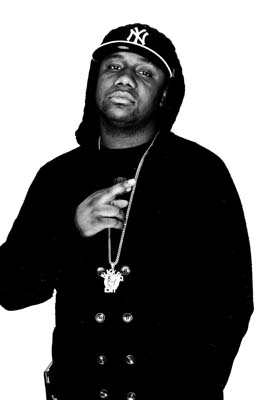
Parlé: This was the point where people started to really notice you. After that battle, what was your aim, or focus, as far as where you wanted to take the battle thing?
Mook: I wanted to be more known, I wanted to get money. I was attracted to the money. I could get a deal. Even though that was Pop’s vision, when I was young I ain’t notice it, I was just doing straight battles, I didn’t make music. Mostly I was doing freestyles over beats and stuff. I had no problem with grinding. I was still young, like 18, after the Millz battle, I went in the studio, It wasn’t hard, you just gotta find ya tone. It takes a little time to adjust.
Parlé: What kind of adjustments exactly? How much different do you see making music and structured songs from battling?
Mook: I think it’s the same mindset of battling, the music I’m making has the potential to reach people. You could reach millions and millions of people. As far as the feeling, I’m comfortable both ways. I’m comfy in front of a small group of people, and I’ll be fine in front of a million people. Now that I think about it though, you could be more nervous in the booth ’cause songs might not come out how you want them to. In actuality you might have to slow down and calm your voice. That was an adjustment for me. You gotta differentiate between the two. You gotta adjust, but you also gotta be smart. I know how I like music and how it inspires me. The words I put together ain’t a facade.
Parlé: As you have to speak about something with battling, the subject matter also changes with music. What’s your subject matter like on record as opposed to your opponent being your main focus?
Mook: I talk about a wide variety of things, anything going on. The wives of hustlers in the street, how the hustlers feel, preteen pregnancy, being in love when you’re not supposed to be, everything. That’s why I feel like I got a bigger advantage.
Parlé: And your support system helps.
Mook: Yeah, definitely. I set the mode for how battling go now. You prepare for the person you battling, and go show up with ya rhymes. This gets the maximum out of the individual, when I know. I know I have no yes men around me. Everything can get better to them. When they say they don’t think something’s hot, that’s what makes me hungry.
Parlé: Tell me how you got in touch with the Ruff Ryders camp.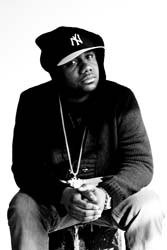
Mook: Ruff Ryders was family from when I was like 13, 14. I saw them on 125th all the time. I would see Dee and Waah (the CEOs of Ruff Ryders) and I used to rap to them and tell them to sign me, but they would be like you too young. We was cool though, they used to call me Lil’ Mookie. But recently I saw Waah at the club, and he don’t go to the clubs, but it was all God’s work. It was a coincidence that he was there. He was like, ‘Let me hear some music.’ I brought some to him the next day. He was like ‘Wow, this is crazy’. And the deal went down from there, signed to Ruff Ryders in September of 2009.
Parlé: When’s the mixtape to drop?
Mook: Countdown to Murda should be dropping real soon. DJ Superstar J is hosting it.
Parlé: As of right now, what do you hope to get out of the rap game, and how do you want people to remember you?
Mook: I want people to respect me as an artist. I understand my talent and I hope to be one of the greatest lyricists, as well as a businessman, like a mogul; like Hov in a sense. He had a great career. It may not be the same, but it’s all about your wit and hustle. If you know how to hustle, you can adjust.
Parlé: And you’ve officially retired from battling right?
Mook: (Laughing) I mean if someone can put up $25,000, maybe we can make something happen…
You can follow Murda Mook on Twitter and Instagram.
Murda Mook Interview Images by Daniel Norton for Parlé Magazine
Readers May Also Like:
Lloyd’s Interscope Records Deal Seals New Album and Acting Role
Kidz In The Hall ‘Land of Make Believe’ – Album Review
‘Freaknik: The Musical’ Is a Lyrical Journey – Cartoon Review
‘Cop Out’ Has Continuous Humor – Movie Review

